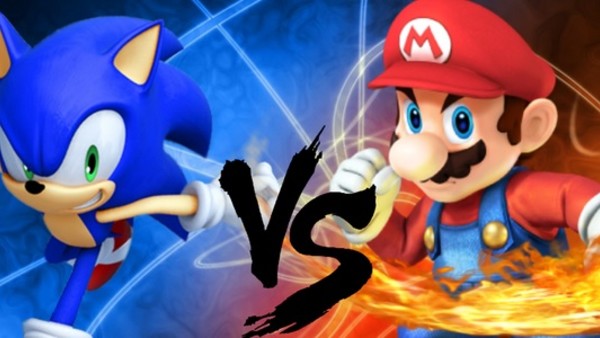The Rise And Fall (And Rise Again) Of Sega
Begun, The Console War Has...

Sega Vs Nintendo and Sonic Vs Mario were battle lines drawn in the sand (or just with chalk) across playgrounds and classrooms for a generation of kids; you were either one or the other, blue or red, mammalian lover or plumbing enthusiast, and your reputation would live or die by your choice - sound familiar, PlayStation & Xbox players?
The console wars of the nineties are now the stuff of legend, so it would not do to dwell on this period for longer than is necessary here. The next major battle Sega had on its hands was not to be fought in 16-bits, but in 32.
Sega released multiple add-on peripherals in a bid to extend the life of the Mega Drive, including the Sega CD and 32X; both designed to offer superior gaming experiences than the standard Mega Drive, in lieu of a true 32-Bit system. Both fared poorly, and the 32X is now a pretty rare collector's piece, such is its inherent strangeness.
It did not take too long, however, for Sega to release a dedicated 32-Bit system, with 1995 seeing the release of the Saturn. By this point, the home console market had opened up significantly, with the likes of the Panasonic 3DO, the Atari Jaguar, and - of course - a little thing called the PlayStation, all vying for gamers' attention in the mid-to-late-nineties.
Of the Saturn, it actually went on to become Sega's best selling system in Japan, but endured poor sales in the UK and US, due in no small part to its comparatively high price when placed alongside Sony's debut machine.
The Saturn did, however, showcase some excellent games, and definitely has its place in the hearts of the fans. Titles like Panzer Dragoon Saga, Sega Rally Championship, Virtua Fighter 2, and Nights Into Dreams certainly stood to demonstrate what the system was truly capable of.
Fast-forward to 1999, and the world bore witness to what would ultimately be Sega's farewell to the home console market, and what a way to go: The Dreamcast.
Having sold just over 9 million units in a criminally short lifespan of around two years, the Dreamcast is widely viewed as a colossal failure. With hindsight, however, the general consensus seems to be that the system was years ahead of its time, and was perhaps far too innovative for its own good.
Take, for example, Dreamcast's online functionality.
The whole idea of online play using home consoles was practically unheard of in Dreamcast's day, let alone the no-nonsense, absolutely functional experience offered by Sega's misunderstood system. Titles such as Phantasy Star Online, ChuChu Rocket!, and Quake 3: Arena all made excellent use of the console's online capabilities without ever kicking up a fuss and shouting about it.
It just worked.